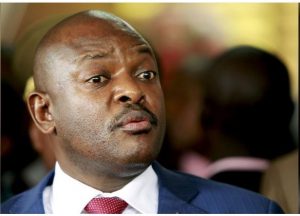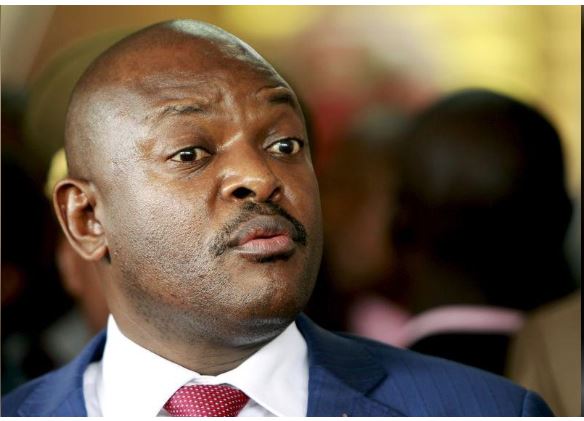More crimes against humanity were committed in Burundi in 2017 and 2018, whipped up by rhetoric from top officials including President Pierre Nkurunziza, a U.N. human rights report said on Wednesday.

Burundi has tried and failed to stop the U.N. Commission of Inquiry on Burundi, set up by the U.N. Human Rights Council in 2016, and refuses to cooperate with it. The commission said last year that officials at the highest level were responsible for crimes against humanity.
“The Commission has reasonable grounds to believe that crimes against humanity continue to be committed in Burundi,” the Commission’s latest report said.
“These crimes include murder, imprisonment or other severe deprivation of physical liberty, torture, rape and other forms of sexual violence of comparable gravity, and persecution on political grounds.”
Nkurunziza’s spokesman and Burundi’s human rights minister declined to make an immediate comment.
Burundi has been seized by violence since early 2015 when Nkurunziza said he would seek a third term, widely seen as a breach of the constitution.
Clashes between security forces and rebels left hundreds dead and forced about half a million to flee — rattling a region still haunted by the memories of the 1994 genocide in neighbouring Rwanda, which has a similar ethnic mix to Burundi.
In May this year a referendum changed the constitution in a way that could allow him to remain president until 2034.
“This climate of disregard for human rights continues to be fomented by repeated instances in which hatred and violence have been advocated by the authorities, including the Head of State and members of (the ruling party) CNDD-FDD,” the commission said.
The Commission said Nkurunziza’s policies, pouring resources into security at the expense of social services, increasing debt and the burden on women looking after families, had turned Burundi from a developing country to a humanitarian emergency.
“In the space of two years, the number of people ‘in need’, mainly in terms of health care, food, water, hygiene and sanitation, increased from 1 million to 3.6 million, representing more than 34 per cent of the population.”
Corruption and “misappropriation of public funds among high-level authorities” were further depleting state resources, it said.
Members of the National Intelligence Service and the police, including high-ranking officials, committed a large number of human rights violations, and the Imbonerakure, the youth wing of the ruling party, was playing a growing role, the report said.
Opponents of the government had been detained and tortured, often by the Imbonerakure, the commission said.
The number of summary executions appeared to have diminished since 2015, when they took place on a large scale, but the perpetrators took care to cover their tracks by weighing down the bodies and throwing them into rivers, it said.
Additional reporting by Nairobi newsroom; Editing by Catherine Evans

